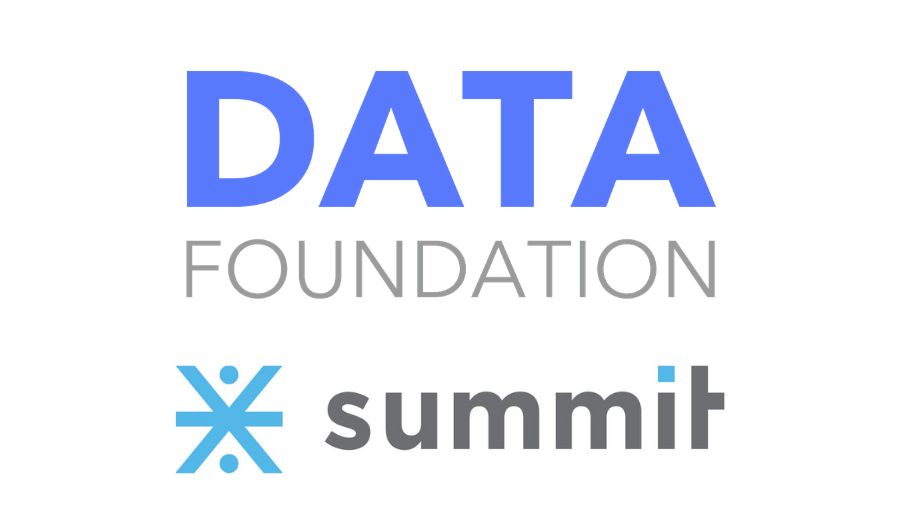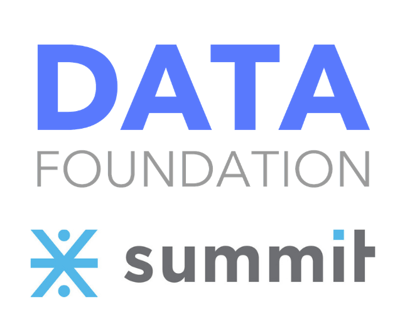Summit Director Sarah Cunningham on Data in the Context of Social Equity and Civil Rights
May 26, 2021 •Sarah Cunningham

The following is a transcript of a speech delivered on May 18 during the Data Foundation’s Data Symposium 2021.
 Good morning! Thank you all for being here with us today. My name is Sarah Cunningham, and on behalf of Summit Consulting, I’m pleased and honored to welcome you to this first day of the Data Foundation’s 2021 Data Symposium.
Good morning! Thank you all for being here with us today. My name is Sarah Cunningham, and on behalf of Summit Consulting, I’m pleased and honored to welcome you to this first day of the Data Foundation’s 2021 Data Symposium.
I want to thank Nick Hart and the staff of the Data Foundation for organizing this conference, and for their work over the years advocating for evidence-based policy, open government, and a data-informed society. Summit Consulting is a supporting member of the Data Foundation, and we are engaged in the foundation’s initiatives to advance data-driven policies and education.
Today, our speakers will discuss data in the context of social equity and civil rights.
The Biden administration has set forth a “whole of government” equity agenda as a cornerstone of its priorities—charging federal agencies to create opportunities for communities and individuals that have been historically underserved by affirmatively advancing equity, civil rights, racial justice, and equal opportunity through a systematic approach to embed fairness in decision-making, and to remove barriers to equal opportunity in programs and policies.
At the same time that COVID-19 has laid bare and exacerbated racial and economic disparities—including lack of access to critical utilities like broadband—technological change, data, and innovation can promote inclusion to close these divides.
Technology and data analytics can help uncover inequity, provide insight to design effective evidence-based policies, and measure impact to drive efforts to redress systemic racism and injustice.
For the federal government to solve real policy problems and realize the value of investments to support an inclusive and competitive 21st-century economy, data must play a central role. We need more data, and better data, to identify and analyze inequities, develop solutions, and evaluate the impact of these investments. We need to have methodologies to assess equity and whether agency policies and actions create barriers to full participation by eligible people. We need methodologies to analyze and identify what actions may be necessary to advance equity in government programs and policies. And we need a comprehensive, secure capability to share and link sensitive information for analytics—to bring together information from the federal, state, and local levels with other sources to evaluate and understand root causes and potential solutions, and to see whether actions taken are working to advance social equity and civil rights.
Beyond the technology, we also need to be thoughtful about how to utilize data to bring social change. As we seek to collect data to answer questions, data collection must not be extractive or exploitive. We need to see that it’s more than data, and that data reflects actual people and communities. We need to have an inclusive process that engages and empowers those communities that are often left behind, where they have a seat at the table and a hand in designing solutions. Ethics need to be front and center in this work. Equity goals need to be part of our performance measures, and progress needs to be monitored and shared with the public in a way that helps support government accountability for results.
At Summit, we’re working with our government and private-sector clients to develop data-driven solutions to these challenges. We work side by side with our clients every day to design metrics, programs, systems, and evaluation tools. From our work with mission-oriented financing and ESG investments to drive inclusive economic growth to our work with government partners to identify and reduce discriminatory employment and lending practices, Summit is committed to data-driven solutions to help make government effective and society just. We’re excited to be sponsoring today’s discussion.
Today, we’re going to hear from some of the nation’s top thought leaders on the role that data can play to advance social equity and civil rights. The Urban Institute will share their piloting work on how to responsibly and ethically develop methodologies to evaluate racial equity through a case study on a new race and ethnicity variable. We’ll hear about the limitations of federal surveys in measuring the economic consequences of systemic racism, and how the profession can move forward to better measure those consequences. And we’ll learn from the Project on Government Oversight’s monitoring of COVID-19 spending, and challenges and opportunities for helping vulnerable populations as we rebuild strong, equitable communities.
Advancing social equity and civil rights is not just our responsibility, it is an opportunity to benefit us all. The administration cited analysis that showed closing racial gaps in wages, housing credit, lending, and education would add $5 trillion to our gross domestic product over the next five years. This work crosses all sectors—from healthcare to housing, education, community planning and transportation, and broadband.
Many of us, including Summit, the Data Foundation, and today’s speakers, are already deep into examining these issues, as they are part of our mission and passions. We certainly have a lot of work to do. And I’m excited to hear from all of our speakers today and move forward.
Thank you.
Get Updates
Featured Articles
Categories
- affordable housing (12)
- agile (3)
- AI (4)
- budget (3)
- change management (1)
- climate resilience (5)
- cloud computing (2)
- company announcements (15)
- consumer protection (3)
- COVID-19 (7)
- CredInsight (1)
- data analytics (82)
- data science (1)
- executive branch (4)
- fair lending (13)
- federal credit (36)
- federal finance (7)
- federal loans (7)
- federal register (2)
- financial institutions (1)
- Form 5500 (5)
- grants (1)
- healthcare (17)
- impact investing (12)
- infrastructure (13)
- LIBOR (4)
- litigation (8)
- machine learning (2)
- mechanical turk (3)
- mission-oriented finance (7)
- modeling (9)
- mortgage finance (10)
- office culture (26)
- opioid crisis (5)
- Opportunity Finance Network (4)
- opportunity zones (12)
- partnership (15)
- pay equity (5)
- predictive analytics (15)
- press coverage (3)
- program and business modernization (7)
- program evaluation (29)
- racial and social justice (8)
- real estate (2)
- risk management (10)
- rural communities (9)
- series - loan monitoring and AI (4)
- series - transforming federal lending (3)
- strength in numbers series (9)
- summer interns (7)
- taxes (7)
- thought leadership (4)
- white paper (15)


